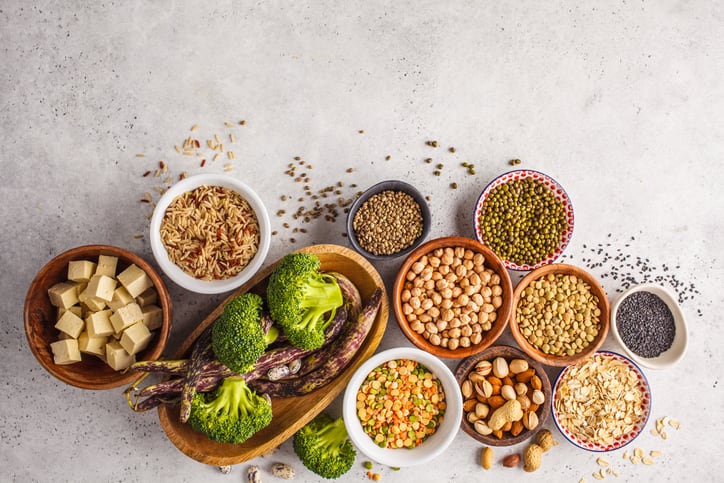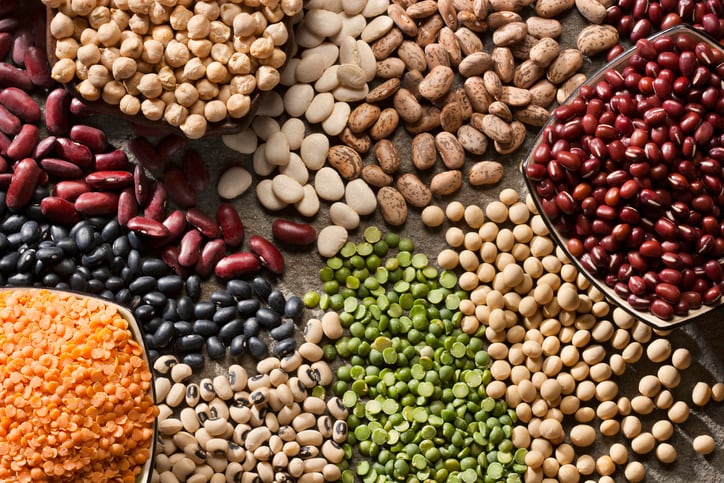The UK Committee on Climate Changing has said the public needs to reduce meat and dairy consumption by 20% by 2030 to reduce carbon emissions. The plant-based sector has also experienced rapid growth, doubling in size in just four years, according to the analysis.
But a new report from communications agency Lexington warns that while the public may be open to looking at alternatives to meat, only a minority of British consumers’ support removing it from their diets altogether.
For one, the British Meat Processers Association has noted ‘the meat industry is over 11 times its size in value sales’, adding it is clear the category is starting from a tiny base. Similarly, A YouGov poll for the Agriculture and Horticulture Development Board (AHDB) found that the majority of people are ‘quite comfortable with their meat consumption’. The market therefore ‘could be nearing saturation point’, the Lexington report said.
Health and environmental question marks
There are questions over whether the makers of plant-based foods are being scrutinised closely enough when they claim better nutritional and superior environmental credentials, the report noted.
“The information available about the benefits of plant-based products is not always reliable or authoritative, and labelling does not always provide clarity,” the report’s authors wrote. “One of the major benefits of plant-based food is said to be its positive effects on diet - however, again, this is disputed. Some nutritionists warn of plant-based diets being short on iron and other nutrients. Meanwhile there is growing concern in the discussion of obesity around Ultra-Processed Foods, a category that some plant-based foods fall into. A plant-based diet based on processed convenience products may not be seen as more nutritious than one that encompasses meat but involves naturally occurring ingredients and little processing.”
Plant-based products should also be prepared for increased scrutiny about their sustainability claims, the report observed. Corners of the meat and livestock sector feel they are being unfairly demonised, observed the authors. “As the plant-based sector expands, we can expect the livestock sector – and others with an interest in protecting it or concern that the pace of change is too fast – to respond.”
Polarised debate helps no one
The report further warned that plant-based is becoming the latest frontier in the culture wars. Research conducted by the report found that the tendency to eat plant-based falls along party lines in the UK – you are far less likely to eat this diet if you are male, Conservative leaning or voted Leave in the EU referendum. You are also more likely to eat this diet if you live in London.
It also found that 68% of Conservative and 67% of Leave voters would oppose a so-called ‘meat tax’, compared to 39% of Labour voters.
But polarised debate is not helpful, the authors said, either to supporting the growth of the plant-based sector, or to safeguarding the future of the meat industry.
The report identified a series of recommendations, aimed at businesses, policymakers and the wider sector:
• Define what plant-based is
• Clarify and evidence sustainability and nutrition claims
• Acknowledge sustainable meat production and support a hybrid diet approach
• Engage with Government and parliament, including devolved bodies
• More effective, coordinated engagement by representatives of the sector is needed in the UK
• Government must pursue a science-based policy agenda
• Support public education as to what constitutes a healthy diet
• Enable consumers to make informed choices
A market that is here to stay?
Despite the challenges, the products in the plant-based, vegan, meat-substitute or dairy alternative categories are on a trajectory of growth and expansion, the report concluded, with Kantar putting the category’s value at just under £600 million in 2020 – double where it was four years earlier. These figures suggest 4.4bn meat free dinners were eaten in 2018, up 150 million meals year-on-year. ING Economics predict the European market will be worth €7.5 billion (£6.6 billion) by 2025.
The expectation is that growth will continue, the report concluded. “Last year was a big year, as all ten of the UK’s supermarkets had their own vegan range; the top ten food-to-go providers also provided a plant-based offering," Louisianna Waring, Senior Insight and Policy Officer at The Vegan Society, told the analysis. “A lot of data indicates that the UK’s purchase and consumption of plant-based products are some of, if not the highest, in Europe, including vegan meat, cheese and seafood; this may even be the highest globally."
But a spokesperson from a major UK retailer suggested the projections maybe overblown, telling the report ‘the situation is reminiscent of the probiotic craze’ which required stores to invest in extra fridge space ‘before demand fell to a more sustainable equilibrium’. Although they pointed out that this trend was still lucrative for producers.




